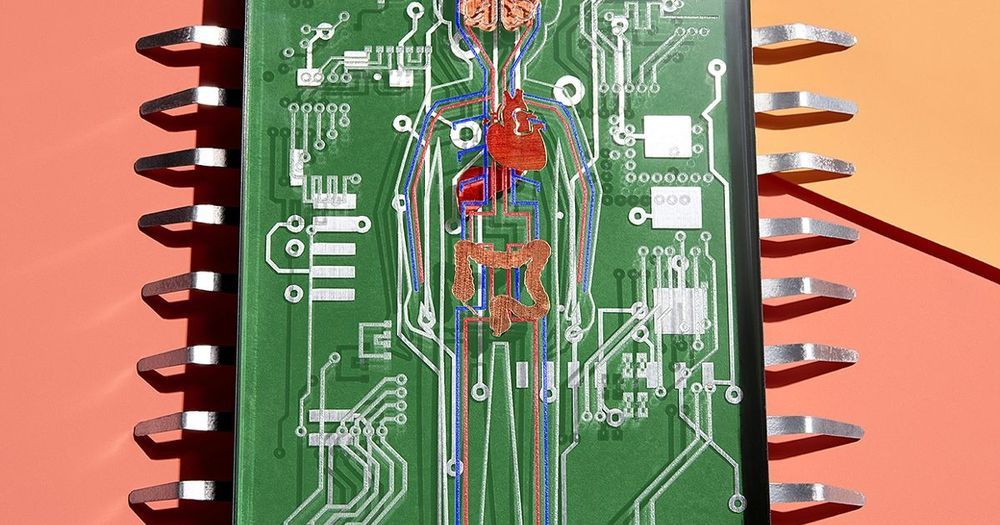I was asked last year what I felt was the best new drug on the market, my response was stem cells??? They said, “no stem cells are just cells from the body???” I explained how once stem cells are removed-extracted they are grown in vitro then injected back into the body in a serum form-making it then a medication-drug. This is amazing Stem cells lined up and sent into battle against the weakest disease on earth. Many children and Women and men have died innocently due to drug users and people living the so-called gay lifestyle.
Category: biotech/medical – Page 2,773

The brain’s auto-complete function
When looking at a picture of a sunny day at the beach, we can almost smell the scent of sun screen. Our brain often completes memories and automatically brings back to mind the different elements of the original experience. A new collaborative study between the Universities of Birmingham and Bonn now reveals the underlying mechanisms of this auto-complete function. It is now published in the journal Nature Communications.
The researchers presented participants with a number of different scene images. Importantly, they paired each scene image with one of two different objects, such as a raspberry or a scorpion. Participants were given 3 seconds to memorise a given scene-object combination. After a short break they were presented with the scene images again, but now had to reconstruct the associated object image from memory.
“At the same time, we examined participants’ brain activation,” explains Prof. Florian Mormann, who heads the Cognitive and Clinical Neurophysiology group at the University of Bonn Medical Centre. “We focused on two brain regions – the hippocampus and the neighbouring entorhinal cortex.” The hippocampus is known to play a role in associative memory, but how exactly it does so has remained poorly understood.



‘Molecular surgery’ reshapes living tissue with electricity but no incisions
Traditional surgery to reshape a nose or ear entails cutting and suturing, sometimes followed by long recovery times and scars. But now, researchers have developed a “molecular surgery” process that uses tiny needles, electric current and 3D-printed molds to quickly reshape living tissue with no incisions, scarring or recovery time. The technique even shows promise as a way to fix immobile joints or as a noninvasive alternative to laser eye surgery.
The researchers will present their results today at the American Chemical Society (ACS) Spring 2019 National Meeting & Exposition.
“We envision this new technique as a low-cost office procedure done under local anesthesia,” says Michael Hill, Ph.D., one of the project’s principal investigators, who will discuss the work at the meeting. “The whole process would take about five minutes.”

Gut microbiome directs the immune system to fight cancer
The advent of immune checkpoint inhibitors—which “release the brakes” of the body’s immune system to launch an efficient tumor attack—are a major breakthrough in cancer immunotherapy. However, these treatments don’t work for everybody and are often associated with significant side effects. The ability to stratify patients based on potential response to immune checkpoint inhibitors could therefore personalize cancer treatment. Efforts to understand the regulation of anti-tumor immunity (when the immune system fights a tumor) point to the importance of the gut microbiome. However, the underlying molecular mechanism(s) remain largely elusive.
Now, a worldwide collaboration involving more than 40 scientists and three hospitals led by researchers at Sanford Burnham Prebys has demonstrated a causal link between the gut microbiome and the immune system’s ability to fight cancer. Together, the researchers identified a cocktail of 11 bacterial strains that activated the immune system and slowed the growth of melanoma in mice. The study also points to the role of unfolded protein response (UPR), a cellular signaling pathway that maintains protein health (homeostasis). Reduced UPR was seen in melanoma patients who are responsive to immune checkpoint therapy, revealing potential markers for patient stratification. The study was published in Nature Communications.
“Immunotherapies have extended the lives of many cancer patients. However, the incredible effects we are seeing today are only the tip of the iceberg. By studying mechanisms of treatment response versus resistance, we can eventually expand the number of people who benefit from immunotherapy,” says Thomas Gajewski, M.D., Ph.D., the AbbVie Foundation Professor of Cancer Immunotherapy at the University of Chicago Medicine. “This study provides an important step toward this goal. The investigators have pinpointed the UPR as an important link between the gut microbiota and anti-tumor immunity. Given previous work indicating a causal role for the host microbiota in the efficacy of checkpoint blockade immunotherapy, this additional mechanistic insight should help select patients who will respond to treatment and also help to guide new therapeutic development.”

Wonder drugs that target ‘zombie cells’ could reverse the ageing process and prevent diseases
With its pudgy body, tired eyes and hair loss, the lower mouse could easily be the father of the sprightly and alert animal nestling alongside.
But they are actually the same age, the result of extraordinary trials of drugs which are slowing down or even reversing the ageing process.
Scientists now believe that ageing itself is responsible for many major conditions such as Alzheimer’s, Parkinson’s, arthritis, cancer, heart disease, and diabetes. And they think they have found a way to turn it off.

Popular pain reliever linked to stroke risk in some older adults
Common over-the-counter pain reliever acetaminophen, which is sold under brand names like Tylenol, may increase the risk of stroke in diabetics, according to a new study. This particular pain medication is available to purchase without a prescription in the majority of countries where it is sold, contributing to its popularity with consumers.
